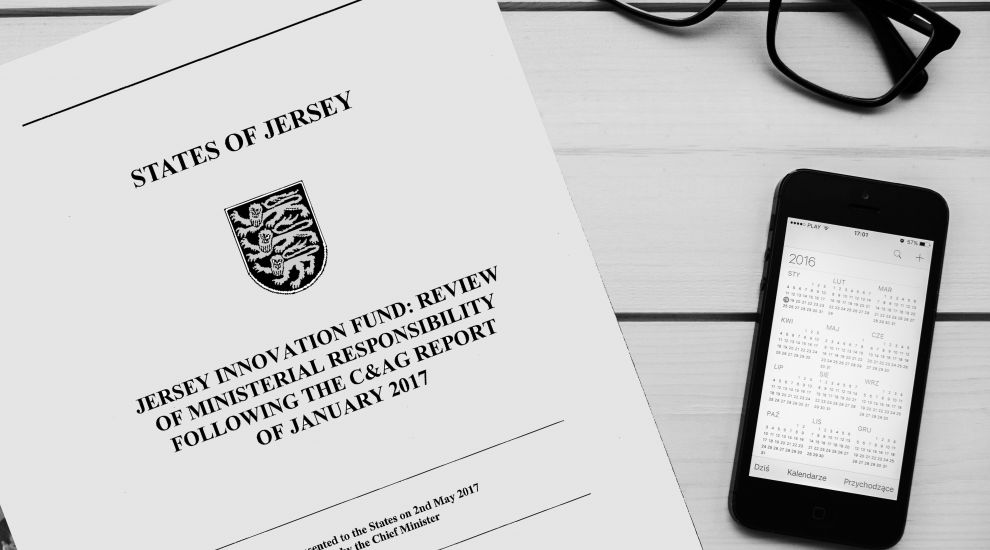

The QC behind the damning report into who was politically responsible for the failure of the Innovation Fund, which may have lost more than £1 million of taxpayers’ money, has acknowledged she wrongly suggested a Scrutiny Panel hadn't been thorough enough.
Penned by Jessica Simor QC of Matrix Chambers, the report was the first of three reviews of the ill-fated Fund, which were commissioned after it emerged that loan repayments totalling up to £1.4 million of public money had fallen overdue, and may not be recovered, and one of the companies it supported had gone into liquidation.
Following its publication, Chief Minister Ian Gorst pardoned Senator Philip Ozouf, who had resigned his position as Assistant Minister responsible for Innovation in the aftermath of the damning revelations, instead laying the blame with Treasury Minister Alan Maclean and Economic Development Minister Lyndon Farnham.

Pictured: Panel Chairman Deputy Steve Luce (left) and Constable Steve Pallett (right) said that they had followed the Fund's progress, in contrast to the report's findings.
The report also seemed to criticise the Economic Affairs Scrutiny Panel, who had inspected the project’s progress in its infancy, for apparently failing to follow up on how things were going – criticism strongly rejected by the relevant States members as both “unfair” and inaccurate.
“I asked Senator Maclean about whether such hearings ever took place and he had no recollection they had or of any continued monitoring. Nor have I found any evidence of such hearings on the Scrutiny Panel web page or anywhere else,” Ms Simor QC wrote.
But now Ms Simor has formally recognised her error in a letter to the Chief Minister, following prompts from Deputy Tracey Vallois and the Solicitor General.

Pictured: Jessica Simor QC of Matrix Chambers, based in the UK, who wrote the report into Ministerial responsibility for the Innovation Fund. (Matrix Chambers)
“It has rightly been drawn to my attention that the Scrutiny Panel did in fact carry out some monitoring during its quarterly meetings where the JIF was considered and that ministers were questioned… These meetings were not specifically addressed at due diligence or the workings of the executive but nevertheless touched on the monitoring that had been promised,” she said.
Comments
Comments on this story express the views of the commentator only, not Bailiwick Publishing. We are unable to guarantee the accuracy of any of those comments.